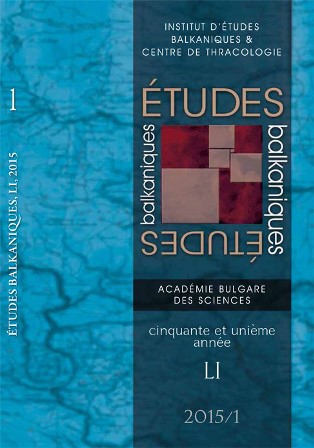THE STRANGE CASE OF THE BULGARIAN-GREEK SECURITY COOPERATION AT THE END OF THE COLD WAR ERA
THE STRANGE CASE OF THE BULGARIAN-GREEK SECURITY COOPERATION AT THE END OF THE COLD WAR ERA
Author(s): Jordan BaevSubject(s): History
Published by: Институт за балканистика с Център по тракология - Българска академия на науките
Keywords: Bulgarian-Greek relations; Balkan regional cooperation; Cold War; Helsinki Process; Nuclear-Free-Zones
Summary/Abstract: The process of détente, inspired by the Helsinki Summit in 1975, produced some favorable circumstances for improving and developing bilateral and regional relations in Europe. One of the most illustrative cases was the development of Greek-Bulgarian relations. Facing similar foreign policy challenges in the last Cold War decade, Bulgaria and Greece established active mutual collaboration even in such sensitive fields, like defense and security, something unthinkable by then for the neighboring states that belonged to adversary military alliances. The evolution of the Bulgarian-Greek relations in those years represents one of the unique examples for gradual successful model of good neighbors’ inter-bloc relations in Europe. The research was based on various newly declassified documents from Bulgarian national archives.
Journal: Études balkaniques
- Issue Year: 2015
- Issue No: 1
- Page Range: 174-189
- Page Count: 16
- Content File-PDF

